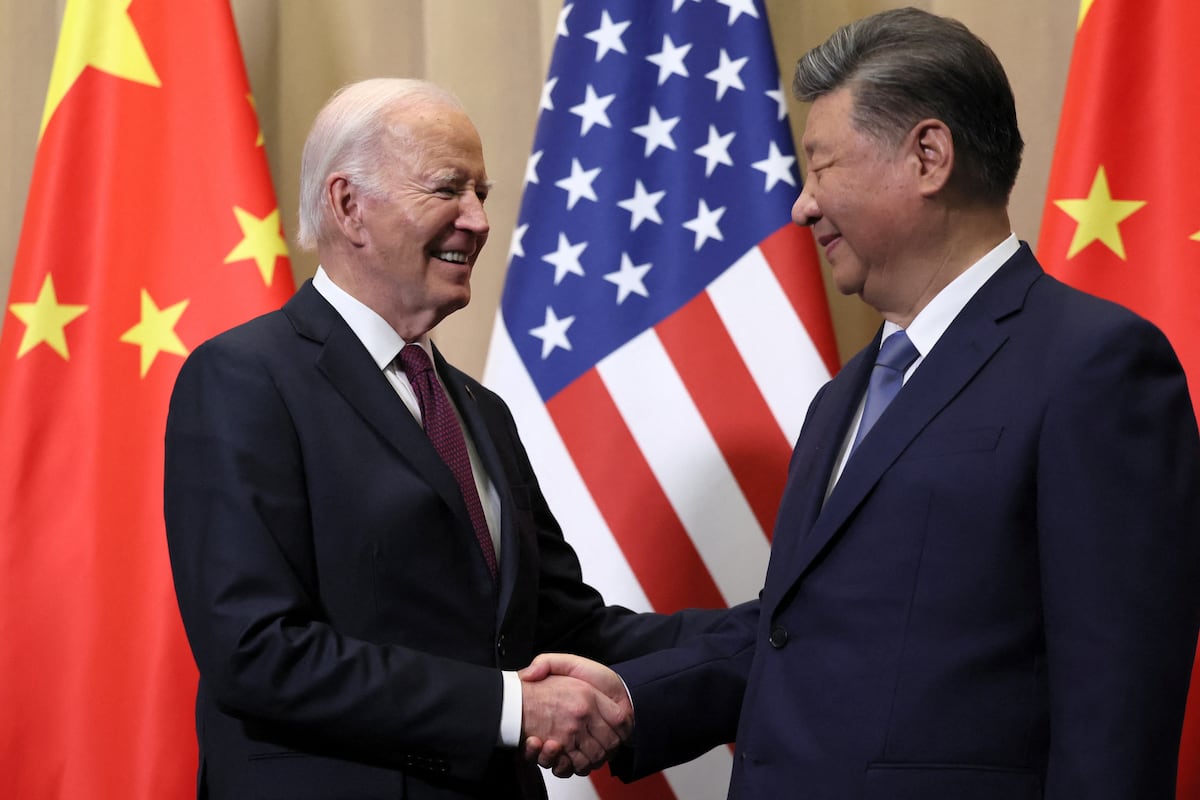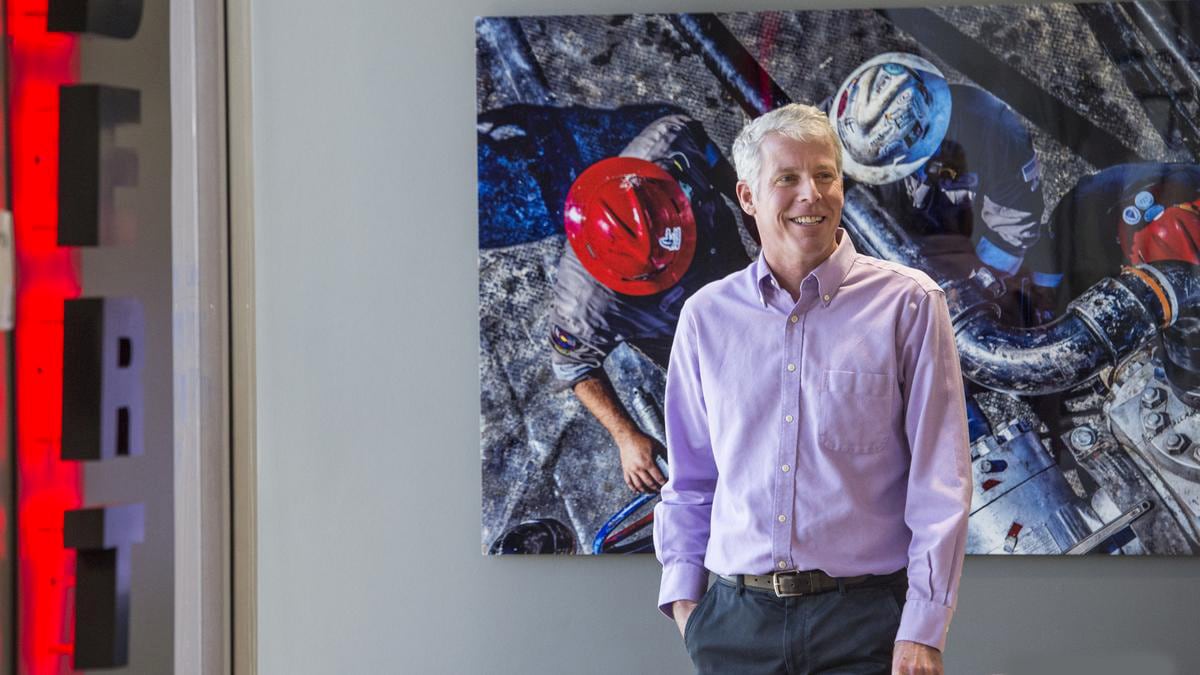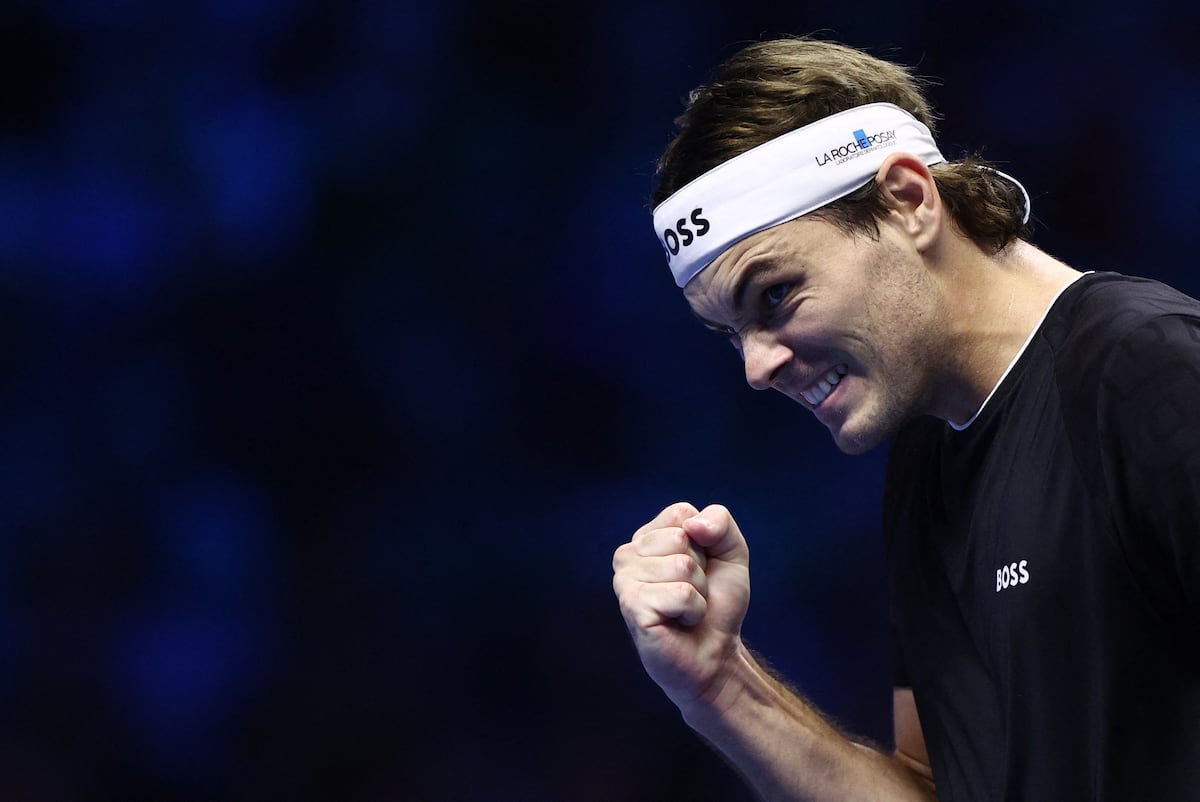Certainty. This is what the president of China, Xi Jinping, has asked directly of the outgoing president of the United States, Joe Biden, and indirectly of the incoming government of Donald Trump, in the third and last meeting of the leaders of the two great world powers before the relief in the White House on January 20. Pragmatic, the leader of the world’s second largest economy has also expressed his willingness to collaborate with the new Administration in Washington “to maintain communication, expand cooperation and manage differences for a transition without incident, for the good of both peoples.” .
In their meeting this Saturday, in Lima (Peru), after the closing of the Asia Pacific Economic Cooperation (APEC) summit, Biden and Xi wanted to send a message of stability in the most complex—and most important—bilateral relationship. of the world. “China’s goal of a healthy, stable and sustainable relationship between the two countries remains unchanged,” declared the president of the People’s Republic.
For his part, Biden stressed what has been his reiterated position during his four years in office: that the relationship between the two countries can be one of “competition,” but it should not be one of “conflict.”
The meeting took place at the hotel where the Chinese leader is staying, who acted as host after Biden had held that role in his previous meeting, last year in San Francisco.
The last meeting, barring surprise, between the Chinese president and the outgoing American president was intended to stabilize, to the extent possible, the most important bilateral relationship in the world and one that the White House National Security Council describes as “difficult and complicated, but fundamental.” Also resolve, to the extent possible, pending issues before the arrival to power of a Trump who had a stormy relationship with Beijing. Washington is more than upset about a case of hackinglinked to Chinain the telephone systems of the US Government and presidential campaigns, and tries to reduce the Asian country’s support for the Russian war machine in Ukraine.
“There are many overriding issues, including what China can do to end its support for Russia in the war in Ukraine, and whether there is anything Beijing can do to stop North Korea from sending ammunition and soldiers to the region.” of Kursk and the fighting. And in addition, they wanted to review the progress made on various issues since their last meeting, in San Francisco,” noted Victor Cha, president of the Department of Geopolitics of the Department of Geopolitics, on the eve of the meeting. think tank Center for International Strategic Studies (CSIS).
The two leaders planned to talk, as the White House had anticipated, about issues in which the two giants share interests, such as the fight against drug trafficking, specifically fentanyl; climate change; artificial intelligence, its uses and standards, in “difficult, but productive” conversations; communication between the respective armed forces, to prevent any possible incident from triggering unwanted consequences.
Biden was also going to raise issues such as Taiwan, the South China Sea, human rights and Beijing’s trade policies that Washington considers unfair, according to what his National Security Advisor, Jake Sullivan, announced this week at a press conference. And Washington’s concern about the People’s Republic’s support for Russia’s war machine in Ukraine, and the sending of more than 10,000 North Korean soldiers to Russia, supposedly to fight in that conflict. “We are increasingly concerned about the consequences of this deployment on long-term stability in Europe and the Indo-Pacific,” noted a senior US official on the eve of the meeting.
“The competition with China is going to be what defines what the world will be like over the next ten, twenty, thirty years. And, therefore, it will have to be a fundamental priority for the incoming administration,” Sullivan declared.
During Biden’s term it has been. He has maintained many of his predecessor’s punitive measures against China, including tariffs, and has passed ambitious laws with an eye on competition with Beijing, such as the CHIPS law to encourage innovation and semiconductor production, while limits the rival’s access to cutting-edge American technology. A strategy that the White House describes as “invest, align and compete.”
But one of the outgoing president’s goals since coming to power was also to stabilize the relationship to prevent competition from leading to conflict. Ties had gone into a tailspin during the second half of Trump’s term: first, due to a trade war precipitated by the US imposition of tariffs as a means of sui generis to balance the trade balance. Then, due to the pandemic, whose first cases were detected in the Chinese city of Wuhan and whose consequences contributed to the Republican losing the 2020 elections. And, already during the Democrat’s mandate, as a result of the visit of the then president of the House of Representatives, Nancy Pelosi, to Taiwan, the democratic island that Beijing considers an inalienable part of its territory.
Biden met for the first time as president with Xi in Bali (Indonesia) during the G-20 summit in 2022. Both leaders already knew each other, from when they held the vice presidencies of their respective countries. And they shared their respect for institutions. At that meeting they agreed to stop the free fall in the bilateral relationship, try to cooperate where they shared interests and compete with respect where they competed.
A commitment that, for better or worse, was maintained during Biden’s four years in office, despite the incident of the passage of a Chinese hot air balloon over US territory that froze those good intentions for several months. By the time the two leaders met again, almost exactly a year ago on the outskirts of San Francisco, also on the sidelines of the annual APEC summit, the waters had returned to their course of relative calm.
This Saturday’s meeting in Lima also had the objective of reviewing what may come in the relationship starting January 20, when the new Trump Administration disembarks, in which the Republican has already announced that he will place the State Department at the head of Until now, Florida Senator Marco Rubio, with very critical positions towards Beijing. The president-elect has also promised to raise tariffs on Chinese products to 60%, a step that Xi warned against this Friday. If implemented, this measure could practically eliminate the Asian giant’s GDP growth, which is currently around 4%: experts estimate that it could cut it by two or three percentage points.
In his speech, although read by the Minister of Commerce, Wang Wentao, before businessmen participating in APEC, Xi warned that “the world has entered a new stage of change and turbulence.” Unilateralism and protectionism, he said, “are spreading and the fragmentation of the world economy has intensified.”
The situation today is very different from that of 2017, when Trump first took office. China is now going through a phase of economic fragility, a consequence—among other things—of its prolonged border closure and zero-tolerance policy against Covid during the pandemic. But he also knows the incoming American president much better now and knows what to expect. The Republican’s interest is, above all, a rebalancing of the commercial relationship.
“China already reached the first phase of a trade agreement with President Trump in January 2020, an agreement that was never implemented” due to the pandemic, says Sun Yun, Asia director of the think tank Stimson Center. “That startup is potentially back on the table. The question is whether it will be enough” to stabilize the relationship, says the expert.
Both Xi and Biden will now continue their trip to Brazil to participate in the G20 summit. Biden will make an intermediate stop in Manaus to become, as the White House has proclaimed, the first American president to travel to the Amazon to see first-hand the effects of climate change. Xi, for his part, is on a week-long tour of a Latin American region where China exercises growing influence. This Thursday the deep-water megaport of Chancay (Peru) was inaugurated. Next week he will complete a state visit to Brazil.







